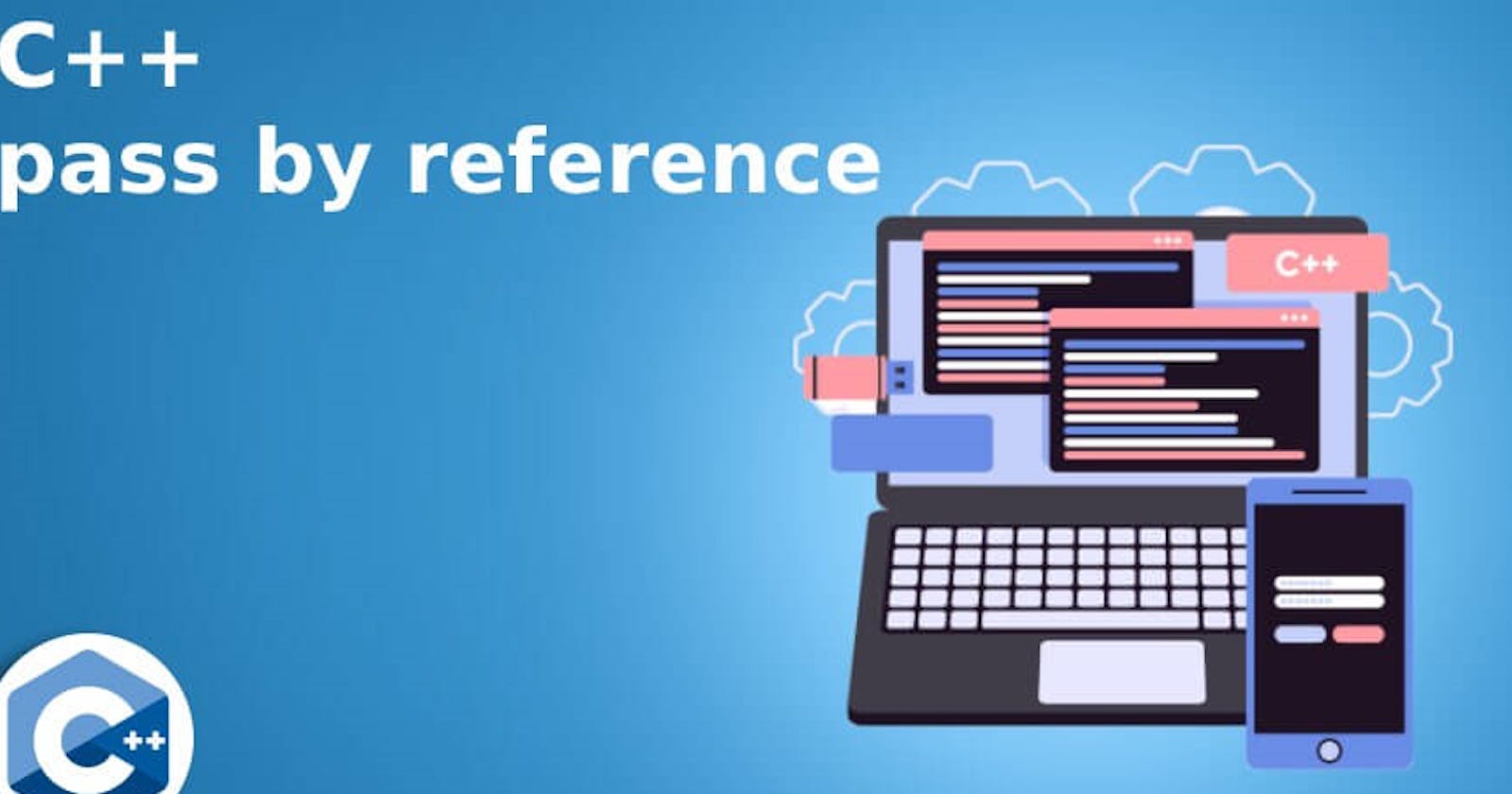"Understanding C++ Function Parameters: Pass by Value vs. Pass by Reference Explained"
"Cracking the Code: Beginner's Guide to Pass by Value and Pass by Reference in C++"
Introduction
When working with functions in C++, understanding how data is passed between functions is essential. Two common methods for passing data are pass by value and pass by reference. In this blog post, we'll explore these concepts in-depth, explaining the differences and helping you understand when to use each approach.
Before getting started let us discuss about reference variable. In an easy way to explain, a boy who has different names. He is called by the name "LOVE" at home but "LOVELY" at school but he is the same boy having 2 different names.
Now the technical definition, a reference variable is an alternative name for an existing variable. It allows you to manipulate the original variable directly, using a different name. Reference variables are declared using the & symbol.
#include<iostream>
using namespace std;
int main()
{
int i=5;
int& j=i;//reference variable
cout<<i<<endl;//5
cout<<j<<endl;//5
j++;
cout<<i<<endl;//6
cout<<j<<endl;//6
return 0;
}
Explanation:
int& j = i;creates a reference variablejthat is initialized with the value ofi. In other words,jis a reference to the same memory location asi, so any changes made tojwill affectiand vice versa.Initially, both
iandjhave the value5, so the first twocoutstatements print5for both variables.When
jis incremented (j++), it modifies the original variablei. Therefore, after the increment operation, bothiandjhave the value6, so the last twocoutstatements print6for both variables.
Now, let's talk about pass-by value and pass-by reference with functions :
Pass By Value :-
#include <iostream>
using namespace std;
void update(int n)
{
n++;
}
int main()
{
int n = 5;
cout << "before " << n << endl;//5
update2(n);
cout << "After " << n << endl;//5
return 0;
}
EXPLANATION :
The code starts by including the necessary header file
iostream, which is used for input and output operations in C++.The
using namespace std;line allows you to use standard C++ names likecoutwithout needing to prefix them withstd::.The
updatefunction is defined, which takes an integernas a parameter. However, this function does not actually modify the original value ofnpassed to it. It only increments the local parameternby 1 inside the function. Since the parameter is passed by value, the changes made to it inside the function are local and do not affect the variablenin themainfunction.Inside the
mainfunction, an integer variablenis declared and initialized with the value5.The program prints the value of
nbefore calling theupdatefunction:"before 5". This is done using thecoutstatement.The
updatefunction is called with the variablenas an argument. However, the function does not modify the originalnvariable declared in themainfunction. The localninside the theupdatefunction is modified, but this change does not affect thenin themainfunction because the parameter is passed by value, creating a separate copy of the variable inside the function.After the
updatefunction call, the program prints the value ofnagain usingcout. Since theupdatefunction did not modify the originaln, the output will be"After 5".
In summary, the code demonstrates the concept of passing parameters by value to a function in C++. Any modifications made to the parameters inside the function do not affect the original variables passed to the function.
Pass By Reference :-
#include <iostream>
using namespace std;
void update2(int &n)
{
n++;
}
int main()
{
int n = 5;
cout << "before " << n << endl;//5
update2(n);
cout << "After " << n << endl;//6
return 0;
}
The
update2function is defined to take an integer parameternby reference (&n). By passingnby reference, any modifications made toninside the function will directly affect the original variable passed from the calling function.In the
mainfunction, an integer variablenis declared and initialized with the value5.The program prints the initial value of
nusing thecoutstatement:"before 5". This shows the value ofnbefore any modifications.The
update2function is called withnas an argument. Sincenis passed by reference, any changes made toninside theupdate2function will directly modify the originalnvariable declared in themainfunction.After the function call, the program prints the modified value of
nusing thecoutstatement:"After 6". This shows the value ofnafter theupdate2function has incremented it.The
mainfunction ends by returning 0, indicating successful execution of the program.In summary, this code demonstrates the concept of passing a variable by reference to a function in C++. The
update2function modifies the original variablendirectly, allowing changes made inside the function to be reflected outside the function's scope. As a result, the output of the program shows the value ofnbefore and after the function call, demonstrating how pass by reference works in C++.Choosing the Right Approach
Use pass by value when you want to work with a local copy of the data without modifying the original variable.
Use pass by reference when you need to modify the original data within the function or want to avoid the overhead of copying large data structures.
Conclusion
Understanding these concepts is crucial for writing efficient and maintainable C++ code. By choosing the appropriate parameter passing method, you can optimize your functions for better performance and readability.Conclusion
In C++, the choice between pass by value and pass by reference depends on the specific requirements of your functions. By understanding these concepts, you can design your functions effectively, ensuring that your code is both efficient and functional. Whether you're a beginner or an experienced programmer, mastering these fundamental concepts is a key step towards becoming proficient in C++ development.
Experiment with both methods, and consider the context of your program to determine which approach is best suited for your needs. Happy coding!

